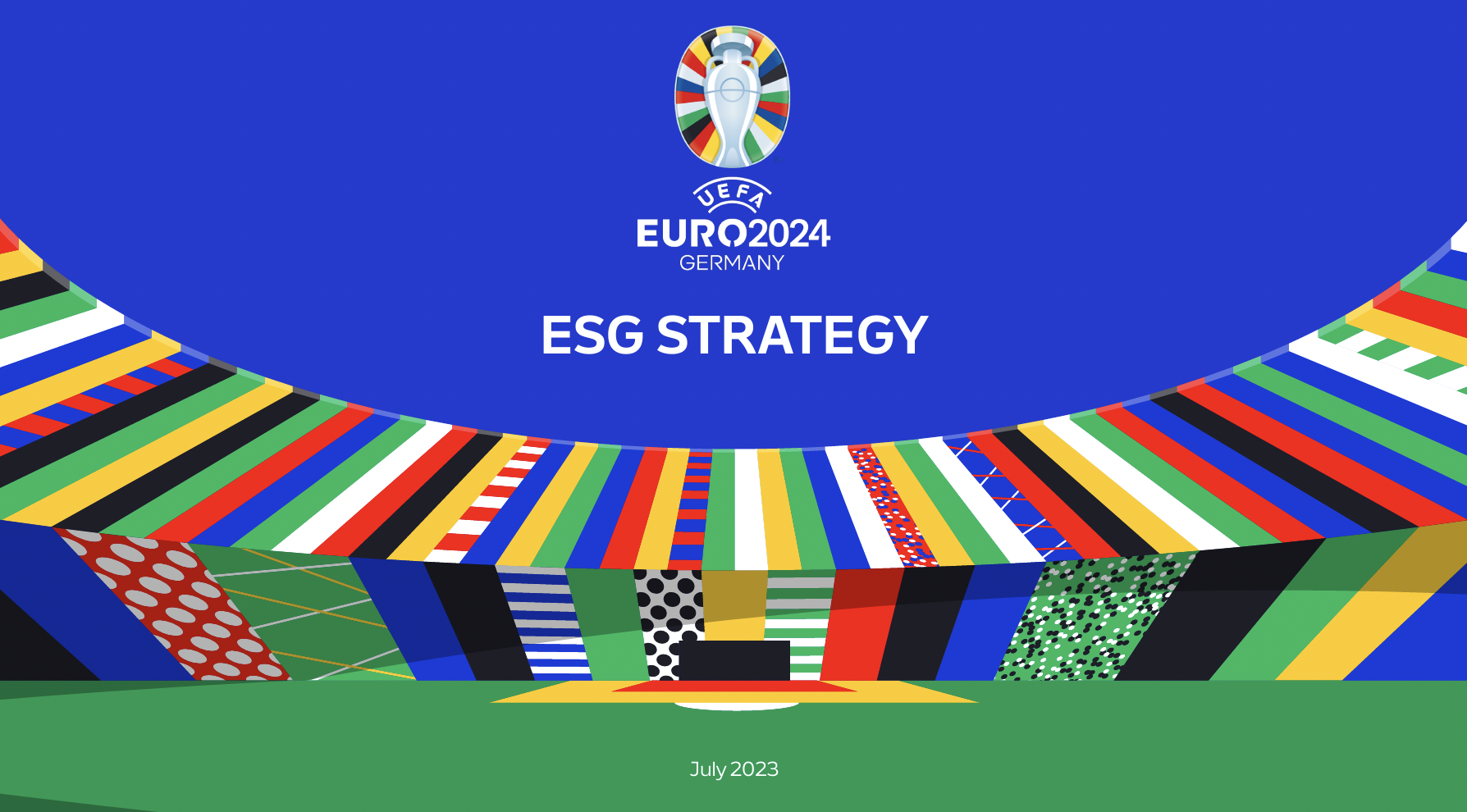July 18 – UEFA has published its ‘UEFA Euro 2024 environmental, social and governance (ESG) strategy’ which it says aims to be a benchmark for sports event sustainability for German and European societies.
UEFA expects EURO 2024 to be the most sustainable European Championship of all time, and “a role model for global events of its kind”.
Sustainability was a key element in Germany’s 2018 hosting pitch and has been a core consideration throughout the 2024 planning, both for the event but also through wider societal engagement and tournament legacy.
Michele Uva, UEFA director for social and environmental sustainability, said: “The UEFA European Championship is the third-largest sporting event in the world, followed by billions of fans across the globe. It spreads passion for our game, unifies people and breaks down cultural barriers. In line with increased societal expectations around football needing to accelerate action around social and environmental sustainability, this is our chance to lead by example by delivering the tournament to the highest sustainability standards.
The ESG strategy is extensive and features three pillars connecting to 11 areas of action, which in turn are backed by 28 topics, 48 targets and 83 key performance indicators.
UEFA highlighted the strategy’s focus as:
- Reducing the impact on the environment, including in the areas of climate protection and waste management
- Investing in a climate fund dedicated to projects focused on mitigating unavoidable tournament-related emissions
- Preventing and fighting all forms of discrimination, ensuring the rights of all are respected and protected
- Advocating for physical activity and offering healthy food and beverage options across stadiums and tournament venues
- Promoting solidarity within German and European society by fostering ties with and supporting grassroots football
- Adopting transparent, responsible and accountable forms of conduct in the event’s operations
- Sharing knowledge and good practices in continuous discussions with stakeholders
- Cooperating and innovating with host cities, partners and other football stakeholders to shape a sustainable legacy
The strategy has been developed in alignment with the United Nations’ Sustainable Development Goals, and to contribute to the tournament legacy.
DFB general secretary Heike Ullrich said: “We are all aware at the DFB that UEFA EURO 2024 will be a sustainable event if we manage to involve German grassroots football – our clubs – and let them share in the event. We and our clubs are preparing ourselves so that the football fever throughout the country can be exploited at local level as well, within and for the good of the clubs.”
Click here to view the UEFA EURO 2024 ESG strategy.
Contact the writer of this story at moc.l1725707083labto1725707083ofdlr1725707083owedi1725707083sni@n1725707083osloh1725707083cin.l1725707083uap1725707083
